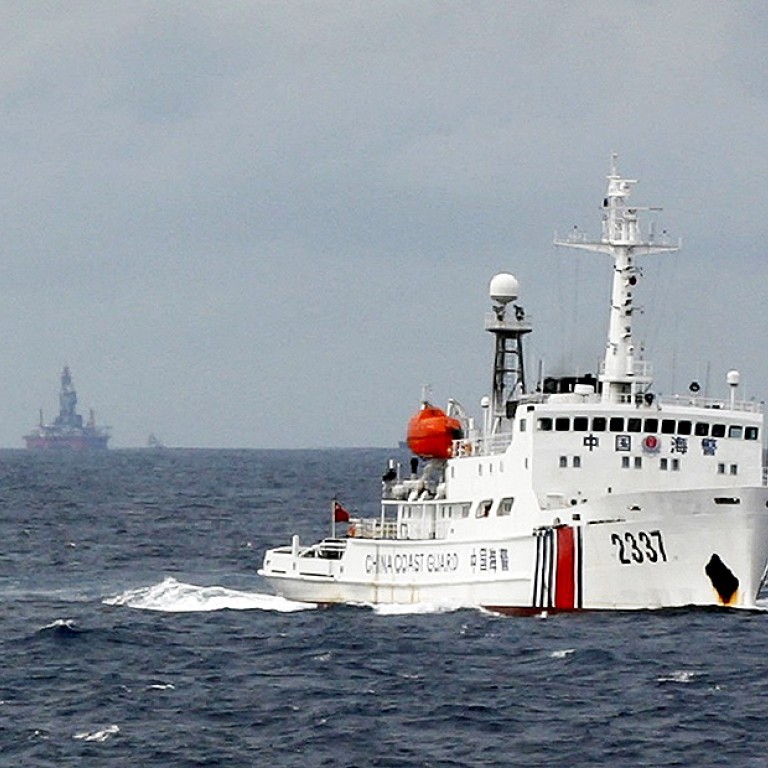
Oil rig stops exploration work near disputed Paracel Islands a month early
Exploration ends and vessels leave base near disputed islands that raised tensions with Vietnam, but operations are 'likely to resume'
Beijing has wrapped up sooner than expected a controversial oil rig's exploration work that triggered deadly anti-Chinese riots in Vietnam.
Most of its vessels were pulled out more than a month ahead of schedule from the rig in disputed waters of the South China Sea.
The move may temporarily ease the stand-off between China and Vietnam that developed after the rig was deployed on May 2.
But observers said it would probably return to the area near the disputed Paracel Islands - which China calls the Xisha Islands and Vietnam calls the Hoang Sa Islands - because signs of oil and gas were found.
The US$1 billion rig, known as HD 981, was originally scheduled to complete its exploration in the middle of next month.
Watch: Chinese and Vietnamese vessels clash recently in disputed waters
However, the state-owned China National Petroleum Corporation said the work was "smoothly completed" on Tuesday.
Hanoi said the rig was illegal and threatened to take the dispute to an international court. But Beijing insisted the operation was in Chinese waters. Both nations deployed more vessels to the area, leading to collisions.
Foreign Ministry spokesman Hong Lei said moving the oil rig to another project called Hainan Lingshui had nothing to do with any "external factor".
He said: "China strongly opposes Vietnam's irrational disruptions and has taken necessary security measures to ensure the operation."
Vietnam's foreign ministry spokesman Le Hai Binh said: "Vietnam demands that China does not take the HD 981 rig back or bring in any other rigs for operation in the oil and gas block 143 of Vietnam, or any other areas in Vietnam's waters."
A source familiar with the exploration said the original three-month schedule was planned to allow for any impact from typhoons. But work had carried on without the need for any suspensions over the past two months. The source said CNPC would now analyse the data before deciding the next move.
Kang Lin, of China's National Institute for South China Sea Studies, said a "good amount" of energy reserves with "huge commercial value" were found and he expected Chinese ships would return to the waters.
"In the short term, China is not likely to conduct large-scale exploration in the area. We still need to collect data and conduct risk assessment before setting up a drilling platform," he said. "But eventually we will be back."
Artificial islands that China had been building would be the base for logistics for further operations, Kang said.
"Vietnam may have to try to get used to this," he said.
Li Mingjiang, an associate professor at the S. Rajaratnam School of International Studies in Singapore, said CNPC's announcement could help defuse tensions in the short term, as anti-Chinese sentiment in Vietnam may diminish.
"The ramming of vessels is risky and costly," he said. "The current tension will not be reduced if the Chinese vessels remain there."
The announcement came a day after Barack Obama had a phone call with President Xi Jinping . Last week, the US Senate passed a resolution calling on claimants in the disputed waters to freeze activities.
But there was no sign the moving of the rig was related to the phone call or the Senate resolution, observers said.

